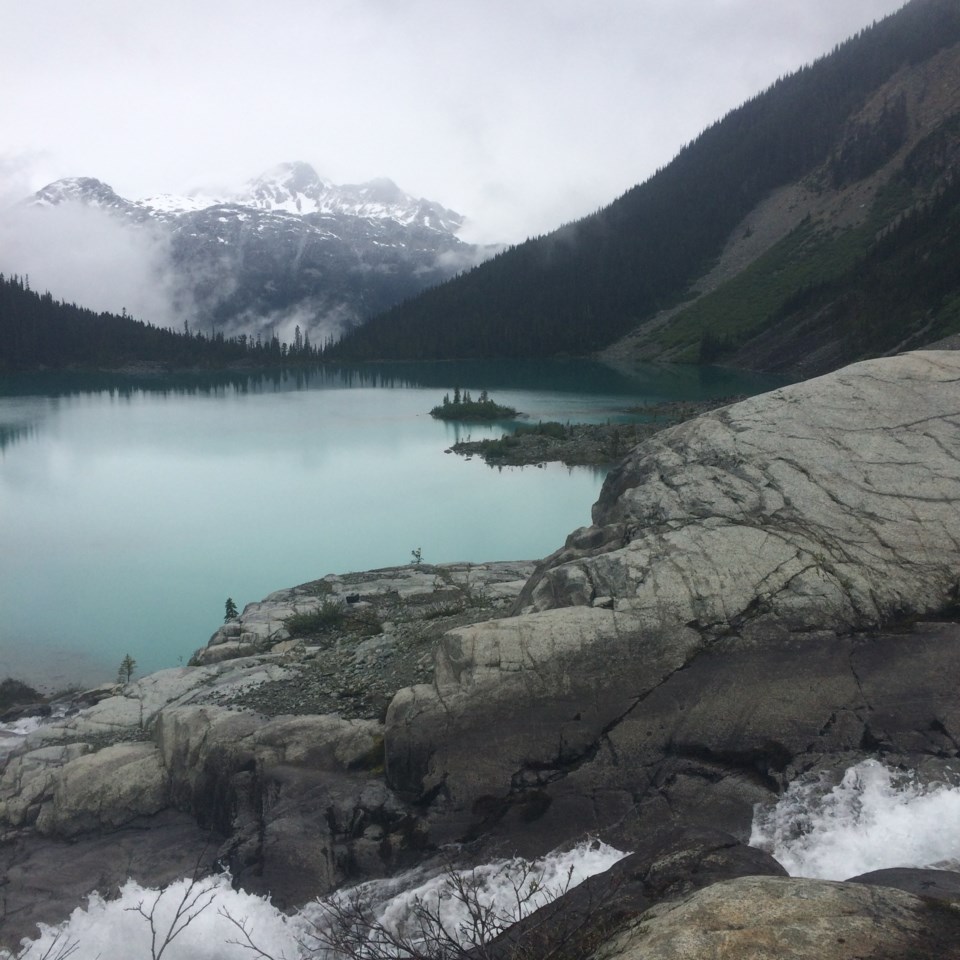Outdoor advocate Steve Jones wants people to know that the Joffre Lakes Provincial Park Visitor Use Management Strategy could have a longer-lasting impact on the popular area than they think.
“I’m really concerned people don’t fully appreciate how significant this document may become in planning decisions over the next decade or longer,” he says. “The government goes through this process where they don’t have a lot of time, they’ll choose one park at a time, do public consultation, and once they lock down the strategy and sign off on it, it’s very hard to do anything inconsistent with that strategy for decades.”
The draft strategy is currently open for public feedback until April 4. Developed by B.C.’s Ministry of Environment and Climate Change Strategy, in conjunction with the Lil’wat and N’Quatqua Nations, it aims to manage the growing number of visitors to the park and protect its natural and cultural features.
Highlights include:
• Continuing the First Nations Park Stewards Program, first introduced in 2019.
• Protecting important habitat for plants and wildlife through strategies like continuing the dog ban, increasing bear caches, and rehabilitating illicit trails.
• Addressing safety concerns with tactics like keeping campsites closed during the winter, enforcing no parking zones, and creating an emergency response plan.
• Ensuring sustainable use at the park by maintaining some winter parking and possibly developing facilities and trails to disperse visitor use.
• Managing visitation by establishing a park capacity, exploring day-use permits for commercial and non-commercial visitors, and enforcing camping reservations for the backcountry campground.
• Fostering appreciation for and knowledge of the park with messaging.
• Understanding visitor trends.
• Managing the park in a financially sustainable way.
Facing a 222-per-cent increase in visitation since 2010, BC Parks has already implemented several short-term measures such as increasing parking capacity from 250 to 350; adding washroom facilities; managing 26 backcountry tent pads through a reservation system; partnering with the RCMP, the Ministry of Transportation and Infrastructure, and the B.C. Conservation Officer Service to address illegal and dangerous parking on Highway 99; and adding a satellite phone at the trailhead for emergency response.
“Feedback from the public and stakeholders will be considered when finalizing the strategy,” a Ministry of Environment spokesperson wrote in an email to Pique. “BC Parks will work with Lil’wat Nation and N’Quatqua to finalize the strategy, which will then guide the management of the park.”
One example of an issue Jones has with the plan, however, is its approach to winter use. “When we have a strategy that says things like, ‘We don’t think there should be winter camping,’ that’s a preposterous claim,” he says. “Of course there should be winter camping. It’s a year-round destination. It’s one of the parks with a highway that runs right by it, making it accessible in the winter.”
While he laid out his other feedback in a personal blog post, another overarching criticism he has is that the government shouldn’t be planning for individual parks “in a silo” and ignoring the domino effect plans for one area can have on others in the region. For example, the plan suggests capping numbers with day-use permits, but Jones suspects that could impact other Pemberton-area trails without facilities.
“They’re deciding in the document there will be no fees for the permit, which means it has to be taken out of another park’s budget,” he added. Jones’ main praise for the document, however, is its collaboration with the Lil’wat and N’Quatqua Nations (no one from N’Quatqha could be reached by deadline).
For Chief Dean Nelson, political chief of the Lil’wat Nation, the overrun area has had a direct impact on the Nation’s ability to use the land for traditional purposes.
“We’re so affected in so many ways,” Nelson says. “The actual use of the place, the traditional use, has been ignored or overlooked … The traffic, the amount of visitors, who’s allowing that? It just got way out of hand. We had no say in any of it. We were just the receiving end of everything.”
He is hopeful that the strategy will help ease some of these burdens and allow the Nation some control over its traditional land again.
“It’s a beautiful place, but it does have history too,” he said. “We are part of that history. We’ve been overlooked on the needs of the Nation, as far as traditional use and medicines and plants and spirituality.”
The strategy, meanwhile, is in stage three of four stages, the next being the development and approval of the final version. (Currently, it should be noted, the park remains closed due to COVID-19.)
Find more details and the public feedback form at bcparks.ca/planning/management-plans/joffre-lakes.




